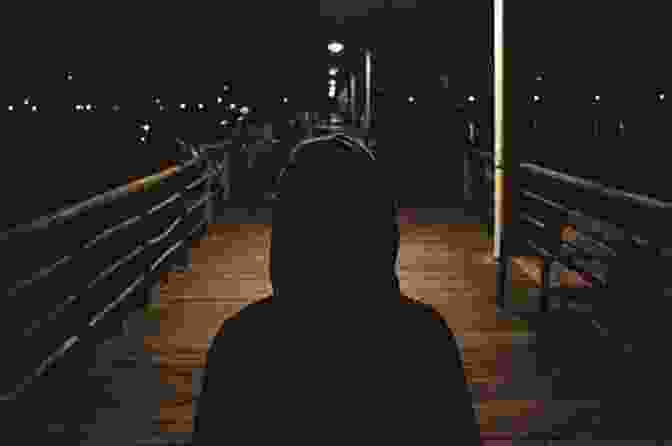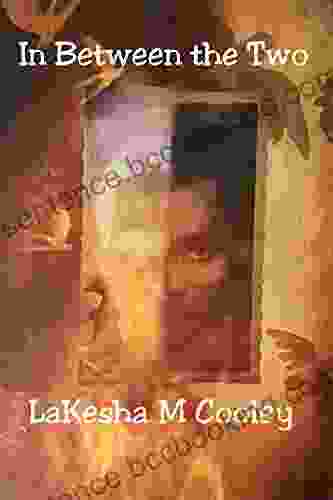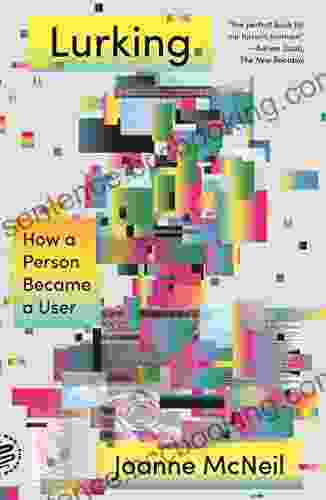Lurking: How People Became Users


4 out of 5
| Language | : | English |
| File size | : | 2106 KB |
| Text-to-Speech | : | Enabled |
| Screen Reader | : | Supported |
| Enhanced typesetting | : | Enabled |
| X-Ray | : | Enabled |
| Word Wise | : | Enabled |
| Print length | : | 306 pages |
Lurking is a fascinating phenomenon that has been around for centuries. It refers to the act of observing and interacting with others online without actively participating in the conversation. This can be done for a variety of reasons, including:
- Gathering information
- Learning about a new topic
- Making connections with others
- Avoiding social anxiety
- Trolling
Lurking can be a positive or negative experience, depending on the motivations of the lurker. For example, someone who is lurking to gather information may find it to be a valuable way to learn about a new topic. However, someone who is lurking to troll may find it to be a way to cause harm to others.
The internet has made lurking more common than ever before. Social media platforms such as Facebook and Twitter allow users to connect with others from all over the world. This has created a vast pool of potential lurkers.
The impact of lurking on our social interactions is still being debated. Some researchers believe that lurking can lead to social isolation and loneliness. Others believe that it can be a way to build relationships and learn about new topics.
Ultimately, the impact of lurking on our social interactions is up to the individual. It is important to be aware of the potential risks and benefits of lurking so that you can make informed decisions about your online behavior.
The History of Lurking
Lurking has been around for centuries. The term itself is derived from the Middle English word "lurk," which means "to lie in wait." In the early days of the internet, lurking was common on message boards and chat rooms. Lurkers would often read through the conversations and participate only when they felt they had something valuable to add.
As social media became more popular, lurking became more common. This is because social media platforms make it easy to observe and interact with others without having to actively participate in the conversation.
The Motivations for Lurking
There are many reasons why people lurk. Some of the most common motivations include:
- Gathering information: Lurkers can gather a lot of valuable information by simply reading through conversations. This can be helpful for learning about a new topic or getting different perspectives on a particular issue.
- Learning about a new topic: Lurking can be a great way to learn about a new topic. By reading through conversations, lurkers can get a sense of what the experts are saying and what the different perspectives are. This can help them to develop their own opinions on the topic.
- Making connections with others: Lurking can also be a way to make connections with others. By reading through conversations, lurkers can identify people who share their interests and learn more about them. This can lead to friendships or even romantic relationships.
- Avoiding social anxiety: Lurking can be a way for people with social anxiety to avoid having to participate in conversations. This can be helpful for people who are shy or who have difficulty interacting with others.
It is important to note that lurking can also be used for negative purposes. For example, some people lurk in Free Download to troll others or to gather information that they can use to harm them.
The Impact of Lurking on Our Social Interactions
The impact of lurking on our social interactions is still being debated. Some researchers believe that lurking can lead to social isolation and loneliness. This is because lurking can prevent people from forming meaningful connections with others.
Other researchers believe that lurking can be a positive experience. They argue that lurking can help people to learn about new topics, make connections with others, and avoid social anxiety.
Ultimately, the impact of lurking on our social interactions is up to the individual. It is important to be aware of the potential risks and benefits of lurking so that you can make informed decisions about your online behavior.
Lurking is a complex phenomenon that has both positive and negative potential. It is important to be aware of the motivations for lurking and the potential impact it can have on our social interactions. By making informed decisions about our online behavior, we can use lurking to our advantage and avoid its potential pitfalls.
4 out of 5
| Language | : | English |
| File size | : | 2106 KB |
| Text-to-Speech | : | Enabled |
| Screen Reader | : | Supported |
| Enhanced typesetting | : | Enabled |
| X-Ray | : | Enabled |
| Word Wise | : | Enabled |
| Print length | : | 306 pages |
Do you want to contribute by writing guest posts on this blog?
Please contact us and send us a resume of previous articles that you have written.
 Book
Book Novel
Novel Page
Page Chapter
Chapter Text
Text Story
Story Genre
Genre Reader
Reader Library
Library Paperback
Paperback E-book
E-book Magazine
Magazine Newspaper
Newspaper Paragraph
Paragraph Sentence
Sentence Bookmark
Bookmark Shelf
Shelf Glossary
Glossary Bibliography
Bibliography Foreword
Foreword Preface
Preface Synopsis
Synopsis Annotation
Annotation Footnote
Footnote Manuscript
Manuscript Scroll
Scroll Codex
Codex Tome
Tome Bestseller
Bestseller Classics
Classics Library card
Library card Narrative
Narrative Biography
Biography Autobiography
Autobiography Memoir
Memoir Reference
Reference Encyclopedia
Encyclopedia Sabrina Snyder
Sabrina Snyder Jonathan M Katz
Jonathan M Katz Joel Grus
Joel Grus Matthew Brennan
Matthew Brennan John Harrison
John Harrison Nick Chiles
Nick Chiles John Kim
John Kim John Madieu
John Madieu Kris Timmermans
Kris Timmermans Joey Korenman
Joey Korenman Stephen Krensky
Stephen Krensky Karen Whitley Bell
Karen Whitley Bell Kenneth Rosenberg
Kenneth Rosenberg Jim Schmalzried
Jim Schmalzried Shirley O Corriher
Shirley O Corriher Persi Diaconis
Persi Diaconis Joe Loughran
Joe Loughran John Ford
John Ford Todd M Michney
Todd M Michney John Endris
John Endris
Light bulbAdvertise smarter! Our strategic ad space ensures maximum exposure. Reserve your spot today!

 Frank ButlerSavage Journey Through the Americas: From Los Angeles to the Amazon - Gonzo...
Frank ButlerSavage Journey Through the Americas: From Los Angeles to the Amazon - Gonzo...
 Desmond FosterEscape into the Enchanting World of "In Between the Two" by Sheila Clark...
Desmond FosterEscape into the Enchanting World of "In Between the Two" by Sheila Clark... Dan BrownFollow ·6.3k
Dan BrownFollow ·6.3k Chandler WardFollow ·5.4k
Chandler WardFollow ·5.4k James HayesFollow ·6.8k
James HayesFollow ·6.8k Luke BlairFollow ·5.8k
Luke BlairFollow ·5.8k William ShakespeareFollow ·15.8k
William ShakespeareFollow ·15.8k Warren BellFollow ·10.5k
Warren BellFollow ·10.5k Colton CarterFollow ·16.2k
Colton CarterFollow ·16.2k Darren BlairFollow ·3.9k
Darren BlairFollow ·3.9k

 Jesus Mitchell
Jesus MitchellDiscover the World of Satisfying Meals with Or...
In a world where culinary creations often...

 Darius Cox
Darius CoxJourney into the Extraordinary Life of Kublai Khan: An...
Immerse Yourself in the Fascinating...

 Gil Turner
Gil TurnerThe Fourth Industrial Revolution: The Precariat and the...
In his groundbreaking book, The Fourth...

 Jonathan Franzen
Jonathan FranzenGenghis Khan: His Heirs and the Founding of Modern China
Genghis Khan, the...

 Eugene Powell
Eugene PowellJourney Through the Golden Age of the Ottoman Empire with...
Delve into the Enchanting World of the...
4 out of 5
| Language | : | English |
| File size | : | 2106 KB |
| Text-to-Speech | : | Enabled |
| Screen Reader | : | Supported |
| Enhanced typesetting | : | Enabled |
| X-Ray | : | Enabled |
| Word Wise | : | Enabled |
| Print length | : | 306 pages |










